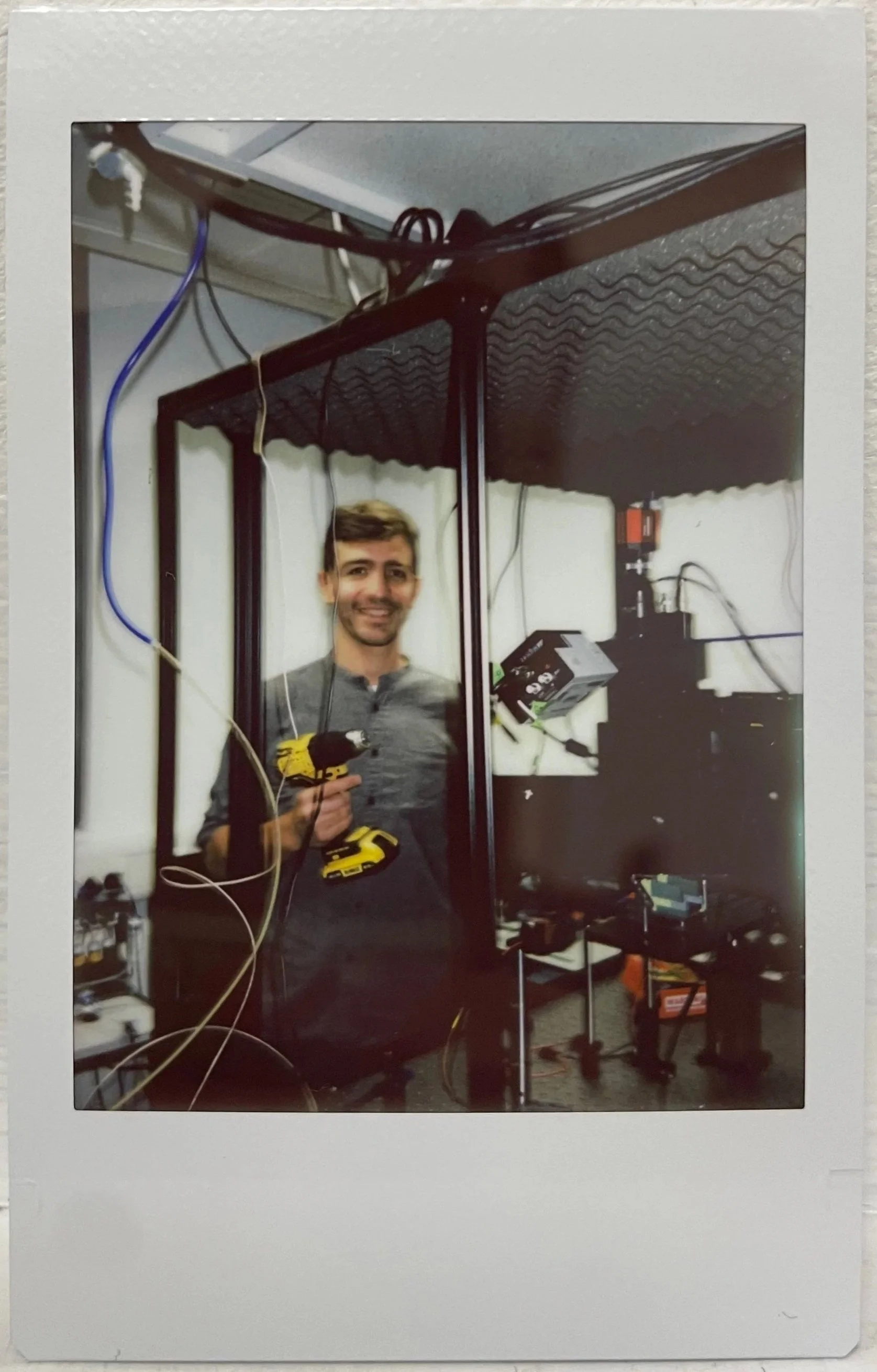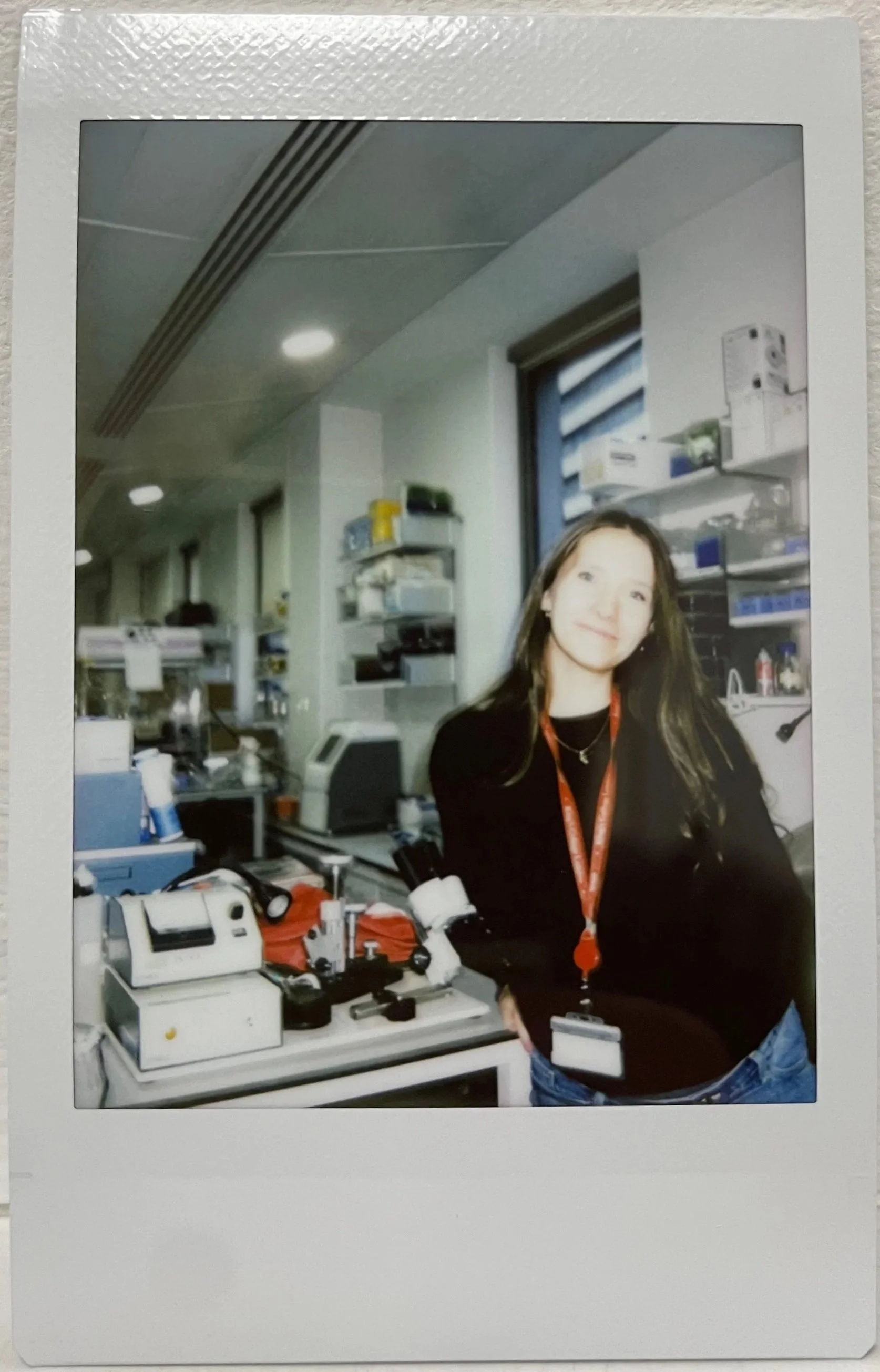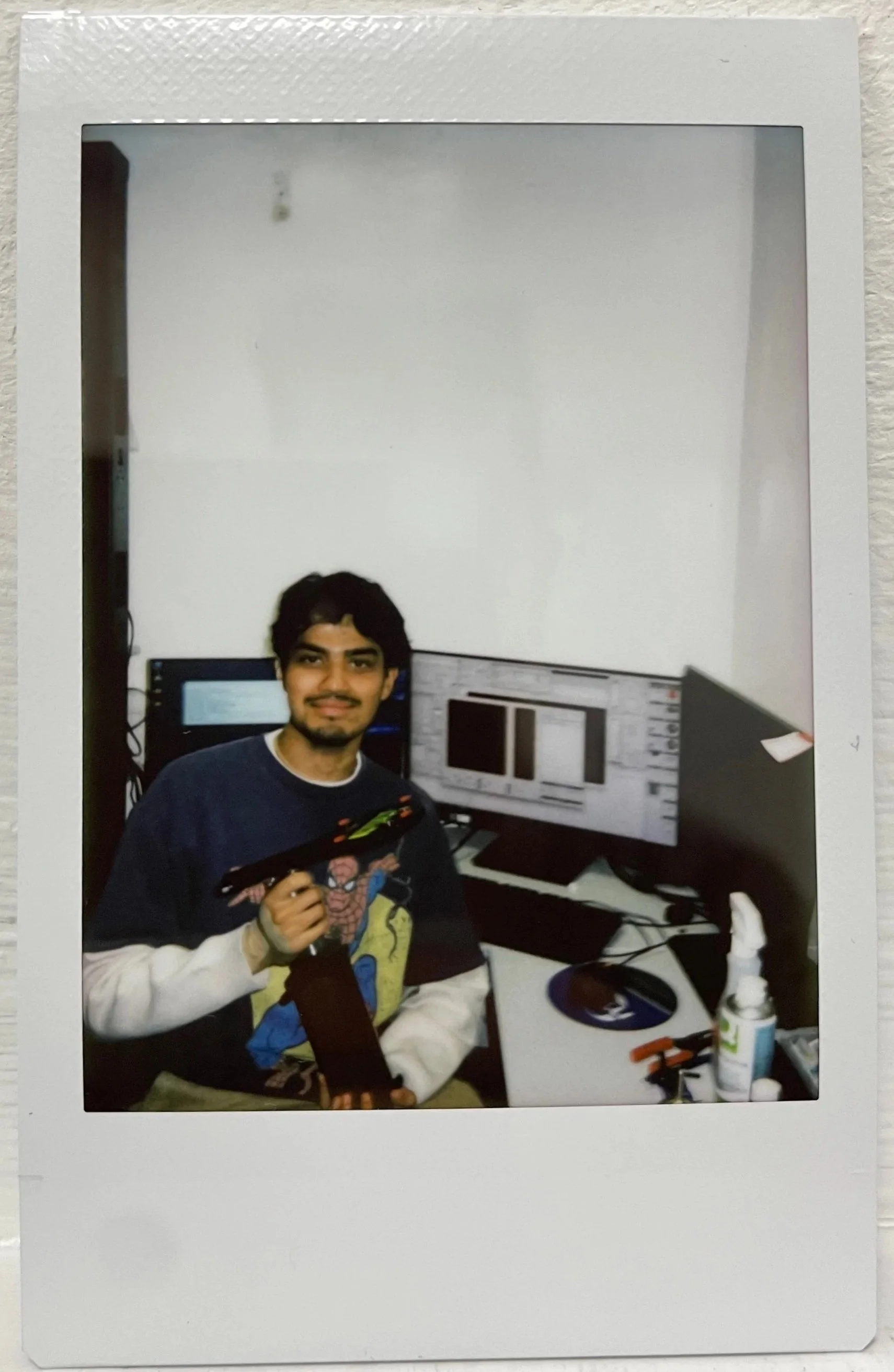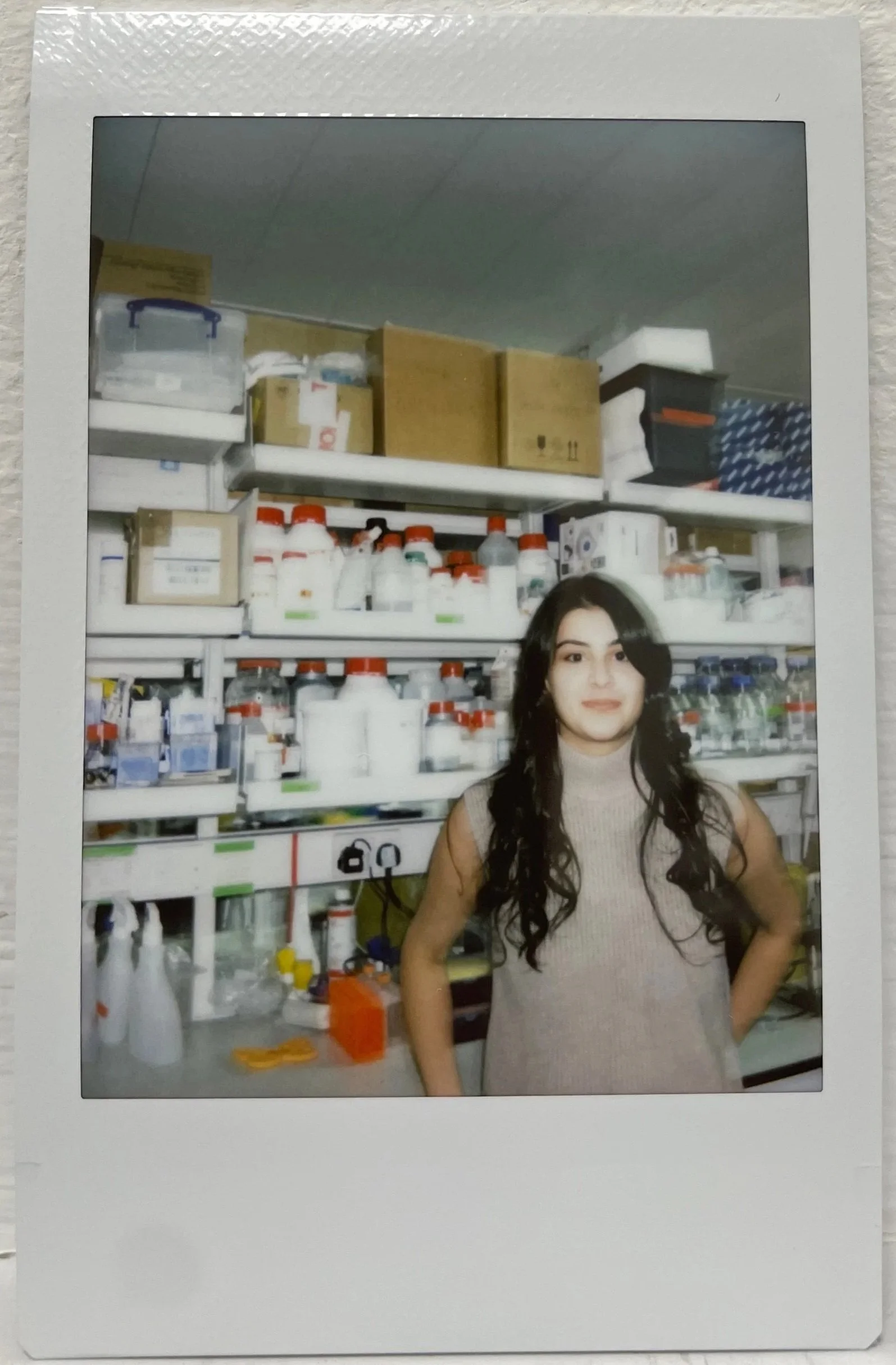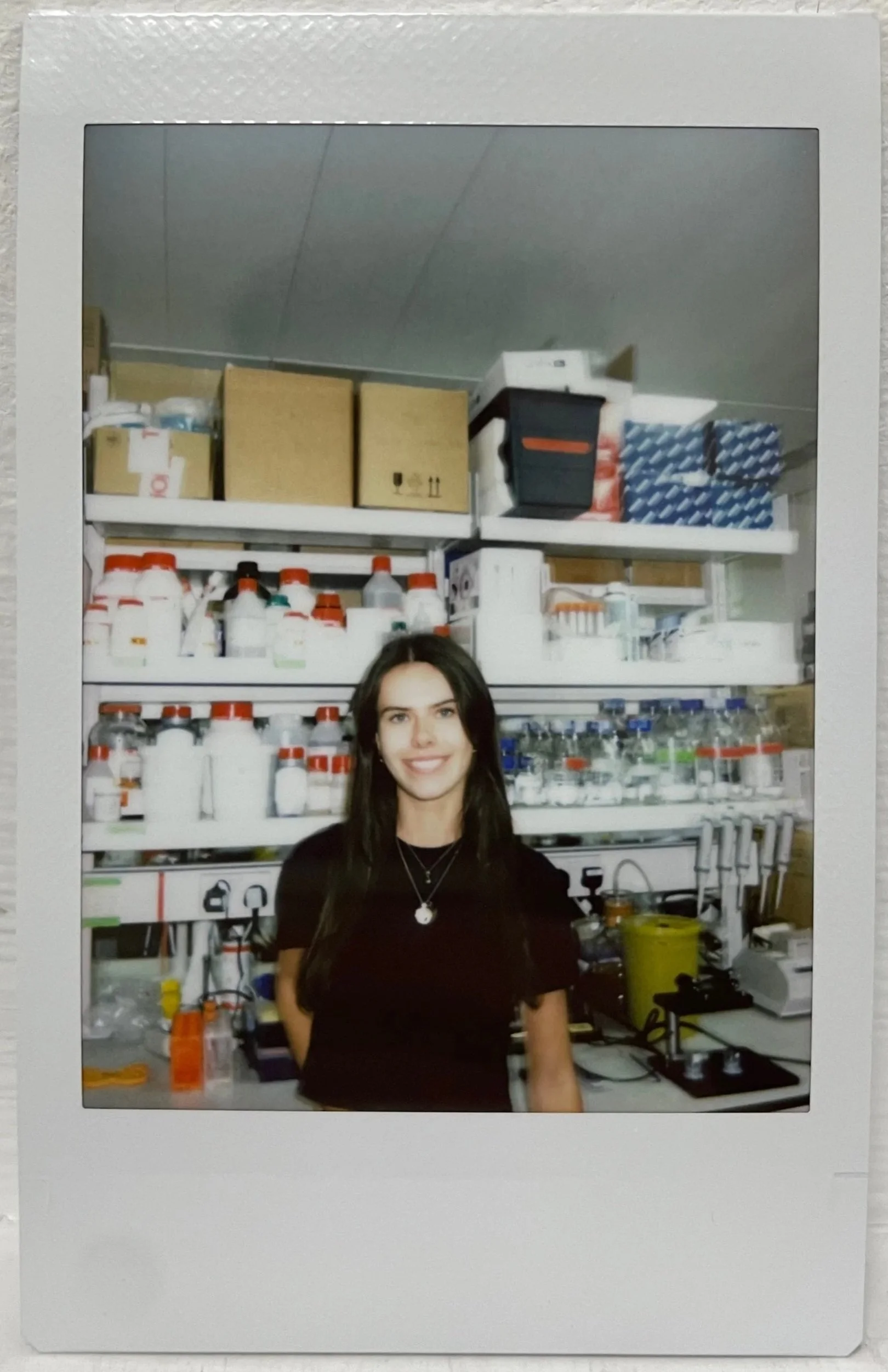Team
Dimitar Kostadinov, PhD
PRINCIPAL INVESTIGATOR
Wellcome Trust Career Development Fellow
Centre for Developmental Neurobiology, King’s College London
[Email], [CV], [Google Scholar], [ORCID]
Bio: Dimitar obtained a BSc in Physiology from McGill University in 2009 and a PhD in the lab of Josh Sanes at Harvard University in 2015, where he studied dendritic self-avoidance in the retina. He was then a postdoctoral fellow in Michael Häusser’s lab at UCL where he discovered that climbing fiber inputs encode reward. Dimitar started the lab in the CDN at King’s in 2023.
Scientific interests: Encoding properties of climbing fibers, long-range connectivity, neural population dynamics, 2p imaging and stimulation, bespoke lab equipment
Personal interests: Traveling, cooking and eating, AFC Wimbledon, cycling around London
Current lab members
Cristiana Iosif, PhD
POSTDOCTORAL SCHOLAR
Bio: Cristiana earned her BSc in Physiology and Pharmacology in 2018 and MSc in Neuroscience in 2019 from the University of Leicester. She then completed her PhD at the University of Bristol in the labs of Richard Apps and Zafar Bashir in 2023, working on cholinergic input to the cerebellar nuclei. Cristiana joined the Kostadinov lab in 2024. Her project is focused on understanding how neuromodulatory inputs to cerebellar cortex influence learning.
Scientific interests: Neuromodulator indicators, pharmacology, optogenetic and chemogenetic, electrophysiology
Personal interests: Aviation, Royal Ascot, afternoon tea, reading, travelling home to Romania
Subham Ganguly
PhD STUDENT
MRC-ITND Programme in Neurodevelopmental Disorders
[LinkedIn], [Github]
Bio: Subham received his BSc in Neuroscience from King’s College London and an MRes in Brain Sciences from UCL, where he built a thick-tissue multiplexed in-situ hybridization protocol in Yoh Isogai’s lab at the Sainsbury Wellcome Centre. He joined the Kostadinov lab in 2024 through the MRC-ITND PhD program. Subham’s project focuses on the cerebellum’s role in shaping neural dynamics in the neocortex during reaching behaviour.
Scientific interests: Latent dynamics, holographic photostimulation, brain-computer interfaces
Personal interests: Bouldering, hiking, reading sci-fi, drinking Guinness and ruminating the concept of fighting a black bear
Carolina Soares
PhD STUDENT
LIDo PHD PROGRAM
[Bluesky], [LinkedIn], [Neuroverse podcast]
Bio: Carolina received a BSc in Biochemistry from Queen Mary University of London in 2021 and an MRes in Integrative Neuroscience from the University of Edinburgh in 2022. She then worked in Sonja Hofer’s lab at the Sainsbury Wellcome Centre as a research technician investigating decision-making in the IBL task. She joined the Kostadinov lab through the LIDo PhD program in 2024 and is researching cerebellar contributions to basal ganglia dynamics and value-guided behaviour.
Scientific interests: Probabilistic decision-making, internal models, circuit learning strategies (supervised vs reinforcement), 2p imaging, high-density electrophysiology
Personal interests: Carolina is a science communicator and hosts a neuroscience podcast, Neuroverse, to engage audiences in science and philosophy.
Ceren Arslan
PhD STUDENT
MRC-ITND Programme in Neurodevelopmental Disorders
Bio: Ren received a BSc in Medical Sciences from the University of Brighton in 2022 and an MSc in Biomedical & Molecular Sciences from King’s College London in 2023, where she worked in Matt Grubb’s lab. She worked as a Research Technician in the Kostadinov lab for two years, before starting as a PhD student in 2025 through the MRC-ITND PhD program. Ren’s project aims to identify common ways in which cerebello-cortical communication is altered in neurodevelopmental disorder models.
Scientific interests: Developmental plasticity, representational drift, unconventional model organisms, building electronic circuits
Personal interests: Heritage photography, modern art exhibits, overly sweet drinks
Emily Hallsworth
RESEARCH TECHNICIAN
Bio: Emily received a BSc in Neuroscience in 2024 and an MSc in Translational Health Sciences in 2025, both from the University of Bristol. During her Master’s, she studied how inputs to interneurons in the prefrontal cortex change across development in Paul Anastasiades’s lab. Emily joined the Kostadinov lab in 2025.
Scientific interests: Neurodevelopmental disorders, 3D brain modelling, optogenetics, viral vector circuit mapping
Personal interests: Online shopping, pilates, horror films, drinking Aperol spritz
Huma Ozbek
UNDERGRADUATE RESEARCH ASSISTANT
Bio: Huma is a Neuroscience undergraduate student at King’s. She is working with Carolina to understand cerebellar contributions to basal ganglia dynamics and decision-making.
Scientific interests: Decision-making and motor control mechanisms, treatment and approaches to neurodegenerative diseases, brain imaging techniques, translational approaches bridging experimental and clinical research
Personal interests: Fashion and creative design, travelling, trying new foods, reading books on consciousness and cognition
Former lab members
Maxime Beau
PhD STUDENT COLLABORATOR, UCL (2023-25)
[Google Scholar], [Github]
Bio: Maxime was a PhD student in Michael Häusser’s lab at UCL. He and Dimitar worked closely for several years studying cerebellar coding during goal-directed behaviour. In his PhD work, Maxime pioneered the use of Neuropixels probes in cerebellar neurophysiology research and developed tools to analyze and interpret these recordings.
Current whereabouts: Postdoctoral fellow, Brody Lab, Princeton University
Dimitar Ivanov
UNDERGRADUATE RESEARCH ASSISTANT (2024)
Bio: Dimitar did the first behavioural tracking experiments of reaching in the lab.
Current whereabouts: PhD student, Department of Human Evolutionary Biology, Harvard University
Opportunities in the lab
We are a new team of researchers interested in understanding how brain regions work together to drive adaptive behaviour. We are looking for ambitious and motivated researchers at all levels to join our team, and our aim is to create a research environment where scientific discovery and the development of lab members go hand-in-hand. Trainees with interact closely with the lab’s PI (Dimitar), and we will collaborate in solving problems in service of our scientific goals. You can find information about our specific research questions and how we plan to answer them here and about our vision for the lab’s research culture here.
Postdoctoral fellows
We are actively seeking postdoctoral researchers with experience in applying modern neurophysiological and/or molecular methods to understand the organization and function of neural circuits. Experience with techniques such as two-photon imaging, electrophysiology, single-cell sequencing, and large-scale data analysis are desirable but not strictly required. We have funding for multiple postdoctoral positions, but trainees should also apply for independent funding. There are a variety of funding opportunties available, and you can apply for most of these even before starting in the lab. Possible funding sources include: the BBSRC Discovery Fellowship, the EMBO Postdoctoral Fellowship, the HFSP Postdoctoral Fellowship, the Marie Skłodowska-Curie Postdoctoral Fellowship, the Newton International Fellowship, the Wellcome Early-Career Award, and others.
If you are interested in doing a postdoc in the lab, please send inquiries with your research interests and CV directly to Dimitar.
PhD students
We are actively seeking enthusiastic and motivated PhD students to join the lab. Experience with neuroscience experiments and data analysis are desirable but not required. A primary goal of your PhD will be the acquire the skills needed to be an independent scientist. PhD students may be hired directly to the lab or come through established PhD programs at King’s.
If you would like to inquire about available PhD positions or are a PhD student who is interested in a rotation in our laboratory, please get in touch with Dimitar.
Undergraduate and Masters students
Opportunities for undergraduate and masters students enrolled at King’s will arise as the lab grows and established researcher can take on and mentor students at earlier career stages. These projects may be either experiment- or analysis-focused, so we encourage students from a variety of backgrounds who are interested in doing their research projects in the lab to email Dimitar about potential opportunties.
Research assistants
The lab is not currently looking for a research assistant / technician. Please check back in the future as opportunities may arise.


